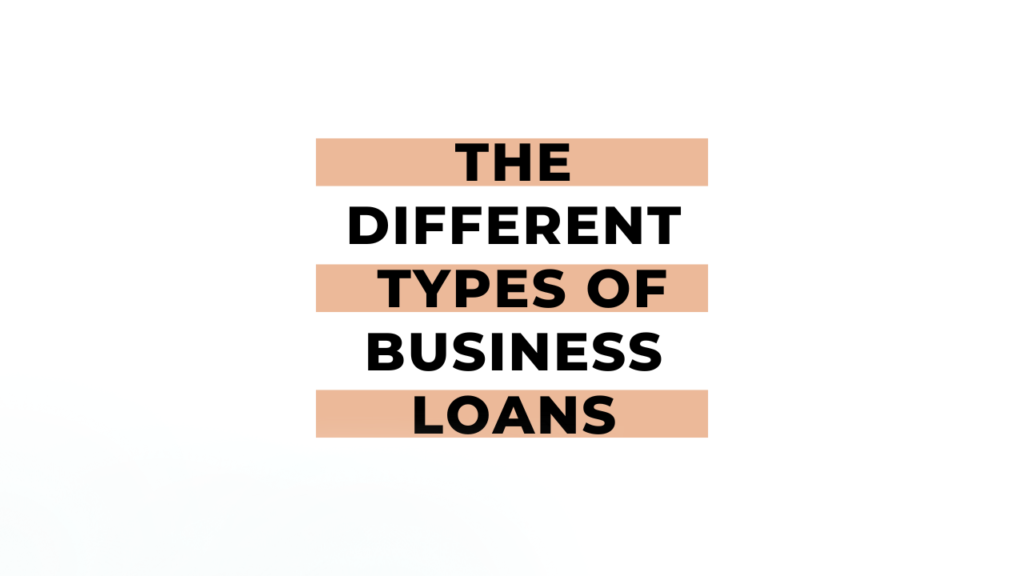Lots of small businesses need money to get bigger. They can get loans from online lenders. Different loans have different rules, like how much interest you pay and if you need to meet certain requirements. There are 9 types of loans for businesses. It is important to choose the right one so that your business grows more than it pays back in interest.
1. Term Loans
Business loans give you money to start or grow your business. You get the money in one big payment and then pay it back with interest over a set time period. This could be 18 months, 1-3 years, or 3-25 years. Working capital loans are different and are for businesses that have steady income and good credit history. They help cover everyday costs of running your business.
Pros:
- You get a lot of money at once.
- You can find out if you’re approved in just one day.
Cons:
- You might need to give something valuable as a promise to pay back the loan. The cost of the loan may be higher than loans from banks.
To get this loan for your small business, you will need:
- A good credit score of 500 or more
- Your business must have been going for 6 months or longer
- You must have at least $15,000 coming in every month from your bank (Some lenders may require that you make between $50,000 and $250,000 a year.)
2. SBA Loans
SBA loans are loans that come from private lenders, but the government (Small Business Administration) guarantees them. The amount of time you have to pay them back depends on what you use the money for. For working capital, it is 7 years and up to 25 years if you are buying real estate.
Pros:
- Low-interest rates that help you save money.
- You can take longer to pay it back.
- You can get up to $5 million in funding.
Cons:
- It can be hard to get approved.
- It takes a long time to apply.
To get money from the government, you will need:
- A credit score of at least 620.
- You have to have been in business for 2 years.
- You must be a U.S. citizen or legal permanent resident.
- No taxes you owe that are overdue.
- No foreclosures or bankruptcies in the last 3 years.
3. Business Lines of Credit
A business line of credit is a popular loan for small businesses. You can borrow any amount up to a certain limit. This type of loan is usually used for short-term costs related to your business.
Pros:
- It is more flexible than a loan.
- You don’t need to give anything in return.
- You only pay interest on what you borrow.
Cons:
- It can be difficult to get approved for a bridge loan.
- You will have to pay more money such as fees for setup and upkeep.
To get this loan, you need:
- A credit score of 560 or higher.
- You must have been in business for at least 6 months and be located in the US.
- Your business must make at least $50,000 a year.
4. Equipment Loans
Equipment loans help you buy things like big machines that you need for your business. It works like a loan for a car; the equipment is like security or collateral for the loan. The loan usually lasts as long as the machine does, because it will eventually get old and not be worth as much.
Pros:
- You own the equipment
- Highly competitive interest rates, depending on creditworthiness
- Lower monthly payments than other loan options
Cons:
- Down payment of up to 20% may be required
- The equipment’s life cycle may be shorter than the loan term
- Can be difficult for new businesses to qualify without an established revenue stream
While the qualifying criteria for equipment loans will vary by lender, you will generally need:
- A strong credit score
- Steady revenue
Available cash flow to cover a down payment of up to 20%
5. Invoice Factoring
Invoice factoring is when you get money from unpaid invoices. It helps your business pay for what it needs without waiting for customers to pay the invoices. This is different than other loans because you don’t have to follow a plan to pay the loan back.
Pros:
- Reliable form of immediate cash flow
- Save time and money you would normally spend chasing down accounts receivable
- No monthly repayment required
Cons:
- Required to share information with the invoice factoring company to verify invoices
- Not all invoices will qualify
- May have higher costs than traditional term loan options
Some common minimum requirements to qualify for invoice factoring are:
- Provide an accounts receivable aging report
- Proof of Incorporation (if applicable)
- Copies of outstanding invoices
- Clients with a good credit history
- Business checking account
- Federal Tax Identification Number
- A valid form of personal identification
6. Merchant Cash Advances
A merchant cash advance is a way for small businesses with bad credit to get money. They give you all the money at once and take some of your future income in return. The money can be taken from your daily sales or out of your business bank account each day or week. You don’t make payments, but instead send a bit of money each time until you pay back the amount they gave you. Make sure to work with a lender who can help explain this to you!
Pros:
- Quick access to funds
- Provides short-to-mid-term solutions for cash flow
- Set remittance schedule
- Easy to qualify
- Does not require personal collateral
Cons:
- Shorter duration
- Can be more expensive than traditional loan programs
- Remittances may be adjusted based on fluctuations in revenue
In order to qualify for a merchant cash advance, you will need:
- A minimum personal credit score of 500+
- A minimum of 6+ months in business
- A minimum of $15,000+ in average monthly bank deposits
7. Personal Loans
Personal loans are not the same as business loans. Most banks will not give you a personal loan to use for your business unless it has been around for a long time. You need to have good credit and maybe something valuable to put down as security if you want a personal loan for your business.
Pros:
- Business credit is not required
- Rapid funding
- Business revenue is generally not a requirement
- Can be a great option for startups
Cons:
- Higher finance charges
- Lower loan amounts
- Risk to personal credit score—in the event of default
- Shorter repayment term
To qualify for a personal loan for business use, you will generally need:
- A minimum personal credit score of 600+
- A debt-to-income ratio no greater than 50%
- Two years of business tax records
- Some form of collateral
8. Business Credit Cards
Business credit cards can be really important for small businesses. They help businesses pay their expenses and stay in business. Business credit cards are different from regular loans because you don’t have to pay all the money at once. You just need to make smaller payments each month.
Pros:
- Build business creditworthiness
- Does not require personal collateral to secure the loan
- Ability to earn various rewards on qualifying purchases
Cons:
- Potentially higher interest rates compared to different types of small business loans
- Annual fees may apply
- May require a personal guarantee that links your personal credit to the account
To qualify for most commercial business credit cards, you will need:
- A minimum credit score of 670+
- Meet minimum annual revenue requirements (revenue requirements vary based on the creditor)
- Ability to produce financial documents such as profit and loss reports, bank statements, and tax returns (business and personal depending on how the business was formed)
Find the Right Type of Business Loan
If a bank said no to your loan application, don’t worry. There are other types of small business loans you can try. Online lenders usually say yes faster than banks, so you could get money within days instead of weeks. Some online lenders even say yes in as little as two days!

